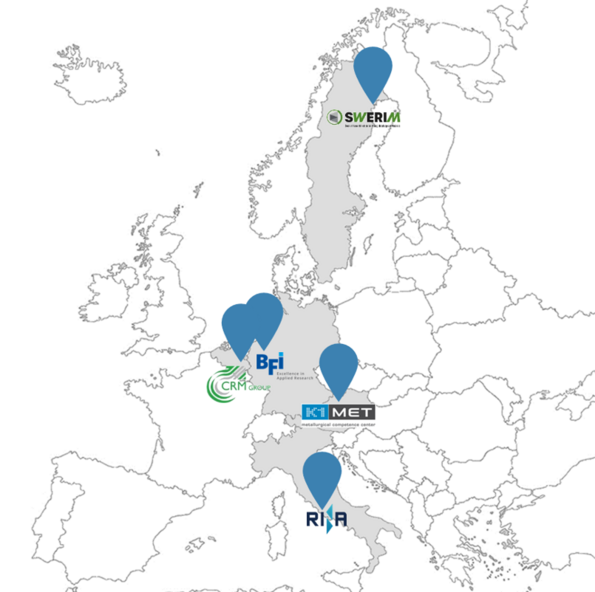Overall approach and objectives
The focus of the RFCS Accompanying Measure project LowCarbonFuture was the evaluation of research projects dealing with the topic of low-CO2 steel production. The projects and their various technologies were analyzed with regard to their CO2 reduction potential or energy requirements.
As part of the LowCarbonFuture project, information was collected, structured and evaluated and projects and knowledge relating to low-CO2 iron and steel production were promoted. By designing a roadmap that, among other things, summarizes the research needs for a successful implementation of breakthrough technologies, an orientation aid for the European steel industry was created in order to achieve the climate targets. The information gathered was made publicly available on the project's own website and through seminars, webinars and workshops.
The objectives of the project included:
- Creating an overview of the current research landscape in relation to low-CO2 steel production
- Identify the basic requirements for successful technology implementation
- Develop solutions for improved cooperation (knowledge and technology transfer) between interest groups and stakeholders
- Creation of a roadmap regarding the necessary research requirements
- Dissemination of information in the form of seminars, webinars and workshops
The EU has set itself ambitious climate targets in line with the UN Paris Climate Agreement (2015), which aims to limit the global temperature increase to 1.5 °C by 2100 compared to the pre-industrial phase. Based on 1990 levels, a reduction in CO2 emissions of up to 95% by 2050 was set for energy-intensive industries such as the iron and steel industry (ultimate goal of climate neutrality - no net CO2 emissions). The production of steel from iron ore is currently very closely linked to the element carbon, which generates large amounts of CO2 as a result of the process. New innovative approaches, so-called breakthrough technologies, are therefore needed to achieve the climate targets.
In the European Union's Low Carbon Master Plan for the steel industry, the Carbon Direct Avoidance (CDA) and Smart Carbon Usage (SCU) strategies are being pursued in order to drive forward a reduction in CO2 emissions.
CDA is an approach based on "green" hydrogen and/or electricity and is intended to enable steel production without the generation of direct carbon emissions (Figure 1). The SCU technology path includes process adaptations to redesign existing steel production routes based on fossil fuels. A distinction is made between Process Integration (PI) and Carbon Capture and Usage (CCU). PI deals with the reduced use of carbon, for example through the internal utilization of by-product gases or the partial substitution of coal with natural gas or biomass. CCU deals with the use of CO and CO2 from steel mill gases for integration into chemical processes. Both PI and CCU can be combined with carbon capture and storage approaches.

 DE
DE EN
EN
